Observation Deck, AKA “Learning Tower”
Sometimes mommy-blogs are the worst.
My daughter LOVES to explore, be a part of the action in our lives, and “help.” This led my wife and I to discuss that a “learning tower” would be of benefit to her. She sent me a couple of mommy-blog links to DIY instructions with the understanding that “everything you need to know will be in there.”
No. No it was not.
What I found was a chicken-scratch post-it-note sketch, a couple obscure photos of the in-process build, and around two dozen of the blogger’s kids climbing in and out.
I closed the links, flared my nostrils to let out a hefty sigh of incredulity, hacked one together, took notes throughout, and made drawings after the fact so that you don’t have to.
Let’s get down to it.
Parts List:
0.75″ x 1.5″ x 2′ Maple – Home Depot (x4… Apparently you have to pick these and most of the other items up… at a store… outside…)
0.75″ x 1.5″ x 4′ Maple – Home Depot (x1. If you want to add more security by doubling the side and front bars, grab two of these instead.)
0.75″ x 4′ Hardwood Dowel Rod – Home Depot (x1)
2″ Drywall screw – Home Depot (You can use wood screws, but I had these available, and more-or-less loathe wood screws)
1.25″ Drywall screw – Home Depot (Same as above)
Wood Filler – Home Depot (Covers screw heads and mistakes!)
Wood Stain – Home Depot (8oz. Use the color you’d like. Heck, paint it if that’s your thing.)
Polyurethane – Home Depot (Kids are horribly messy. Protect your work.)
Helpful Tools:
Tape Measure
Table Saw
Sander
Powered Drill
7/64″ Drill Bit (Make sure it’ll be adequately sized for whatever screws you end up using.)
3/4″ Spade Bit
3/8″ Spade Bit
Paintbrushes
Measure Twice, Cut Once.
Admittedly, I really hacked this hack as I went along. Your end product will turn out a lot nicer using the templates/drawings I’ve created and uploaded to GitHub.
For those unfamiliar, follow the link above, click on “clone or download,” then “Download ZIP.”
This is the first time I’ve tried making drawings in Fusion 360, and they were generated to be printed out on standard 8.5×11 paper, so be gentle with me. If you print them out with the intention of using the detail views as templates, make sure to turn off any scaling efforts made by your computer/printer.
If all goes well and you don’t lose a finger with the table saw (PLEASE DO NOT LOSE A FINGER WITH THE TABLE SAW), you’ll have your parts ready for pre-drilling.
Drill all your holes.
7/64″ bit for all the holes.
3/4″ spade bit to counterbore for the dowel rod.
3/8″ spade bit to counterbore for the screw heads.
In general, the depths are rough estimates, so just drill/counterbore them as deep as you feel necessary without going all the way through the wood (unless you need to).
Take the Edge Off
Use a sander and remove everything sharp. You don’t have to be fancy with it.
I clearly wasn’t.
Assemble
Use the screws and wood glue to make all the proper mates.
Mask Screw Heads
Use the wood filler to hide those unsightly holes. That stuff is HANDY!
Sand & Stain
Even out the surfaces left by the wood filler, give everything a good wipe-down, and slap some color on that wood.
Finishing
Give it a coat or two of polyurethane in a well-ventilated area. Once it’s dry (and the fumes have all subsided), you’re ready to rock.
If you’ve been enjoying what you see here, give me a follow on Twitter @DragonMtnDesign. If not, the mommy-bloggers win.


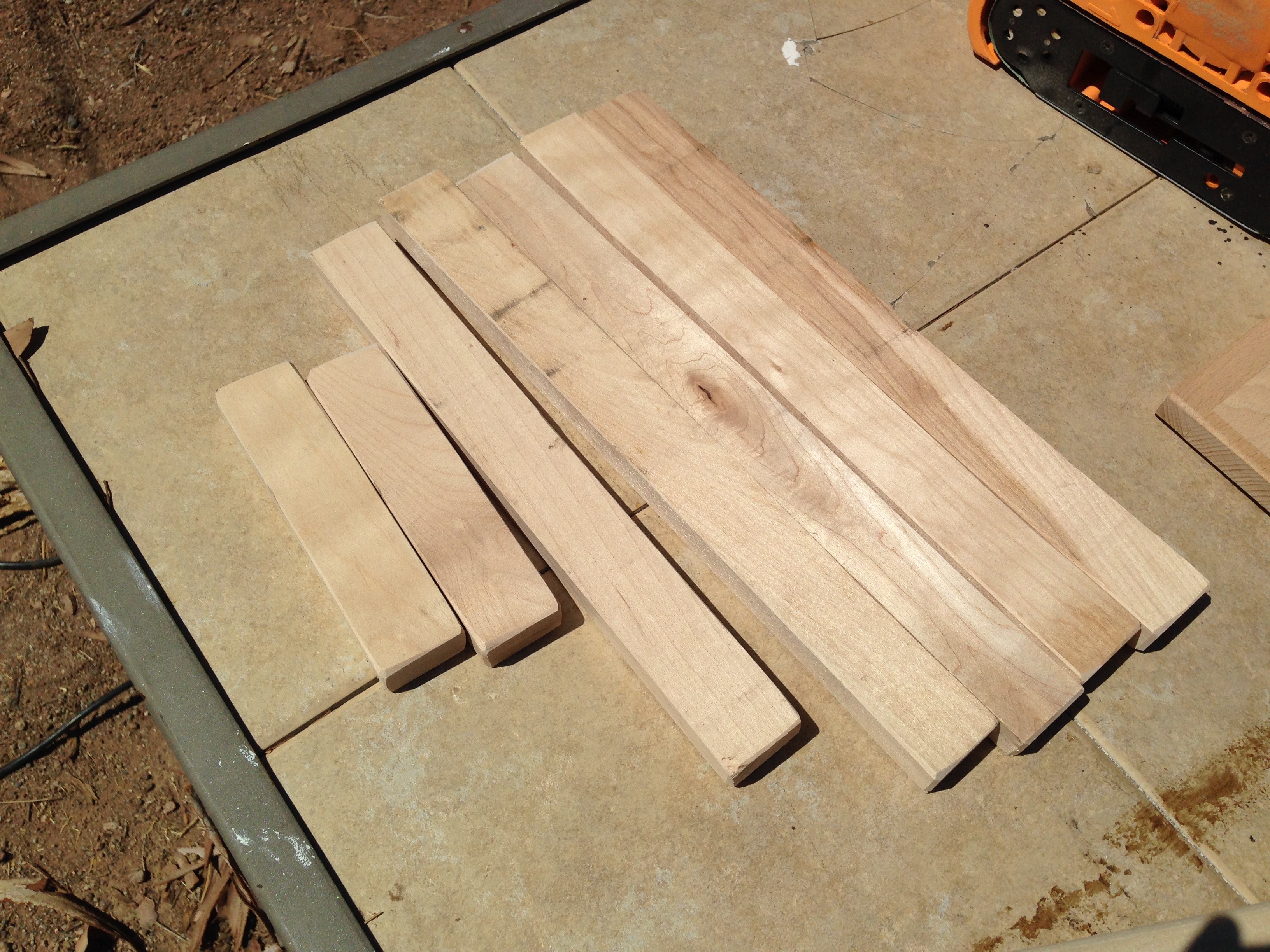
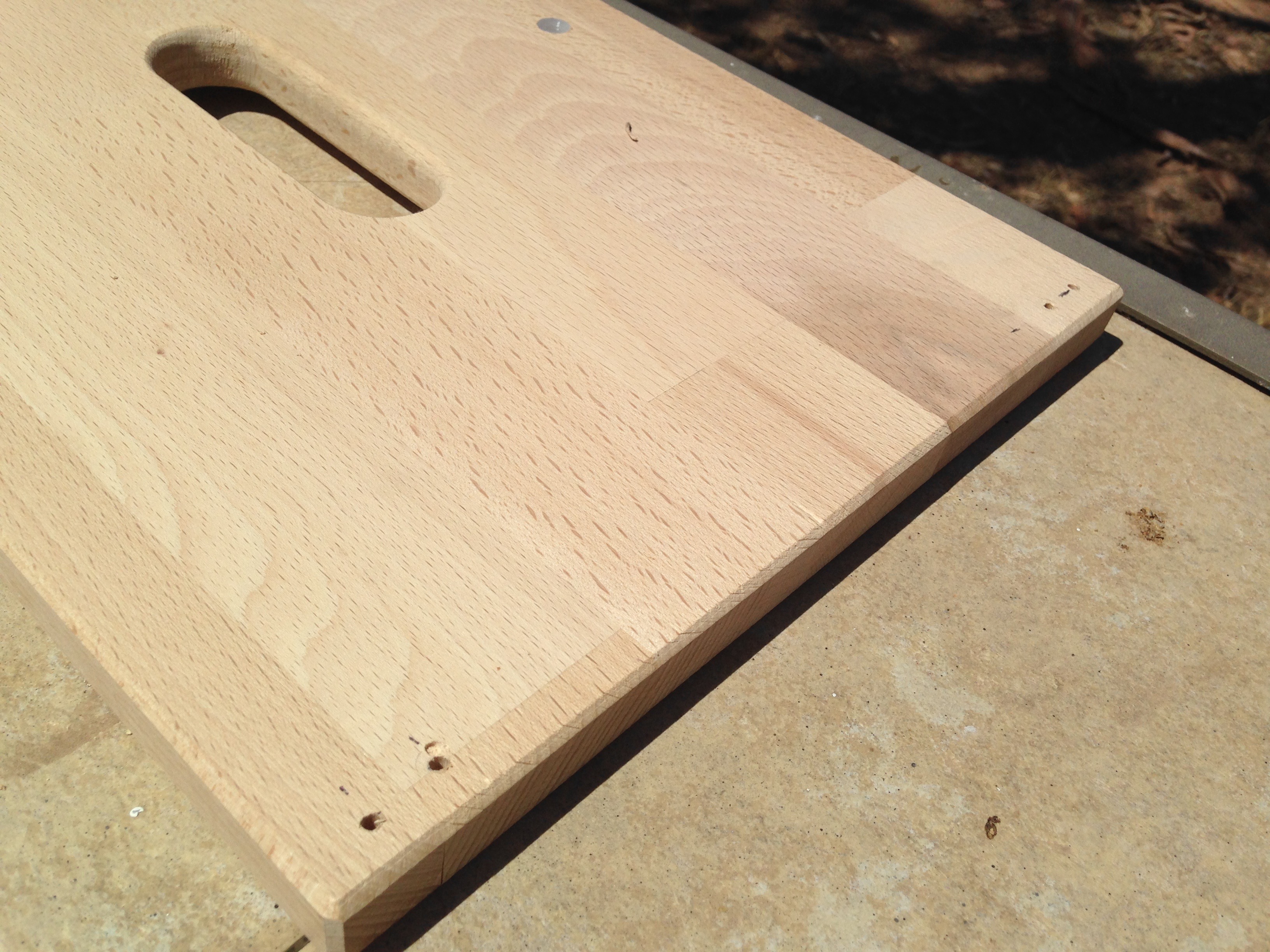
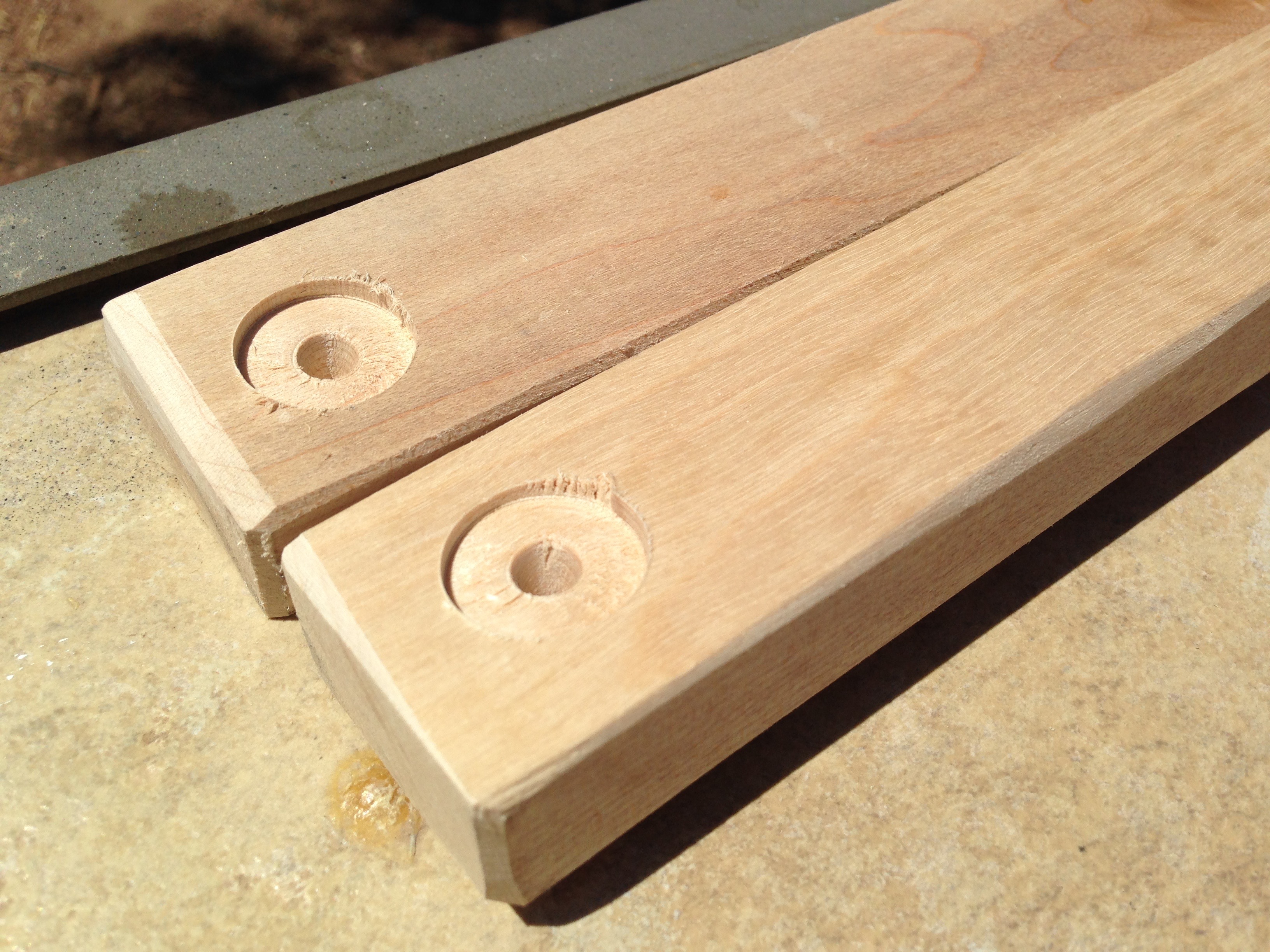
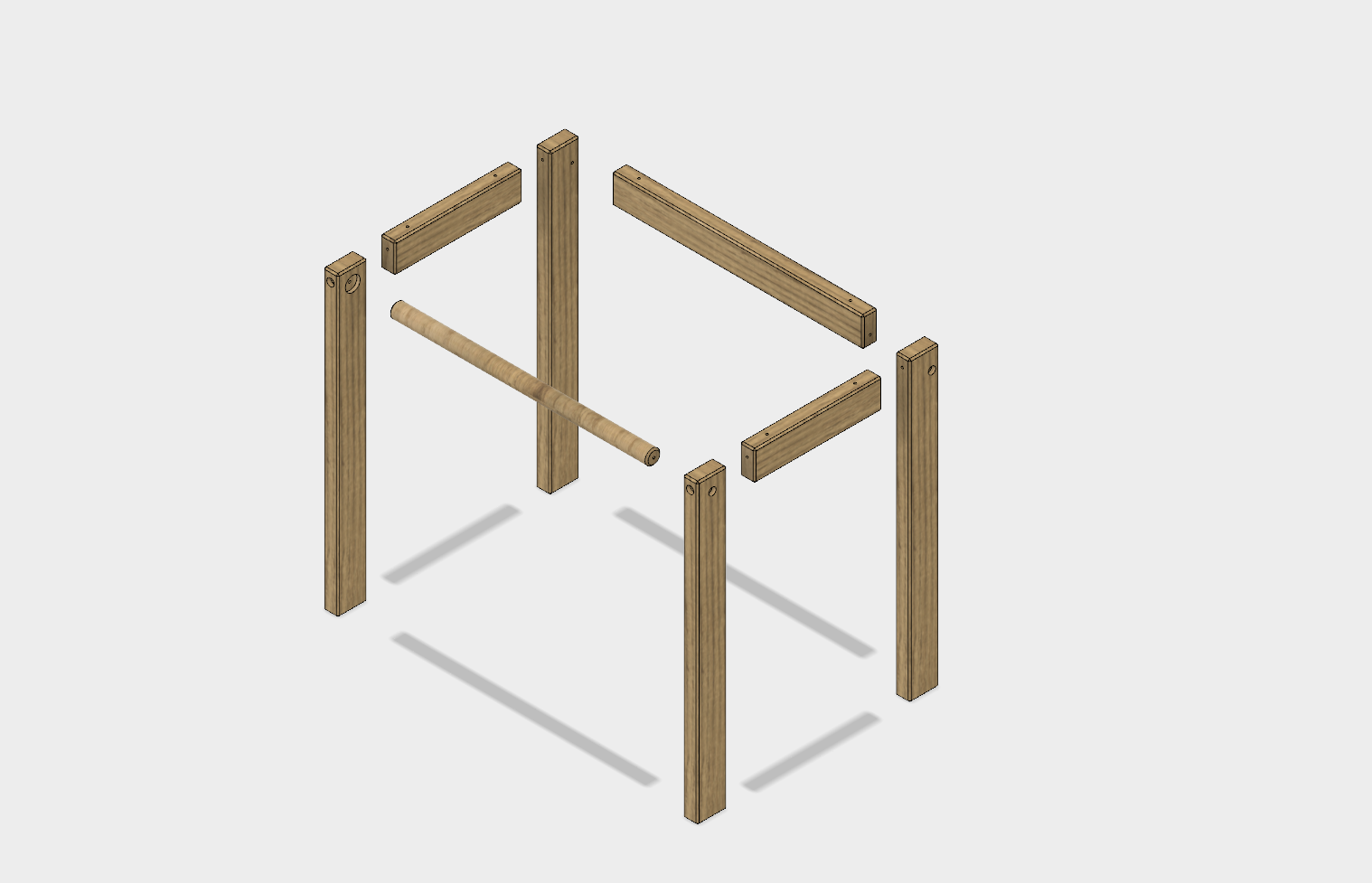
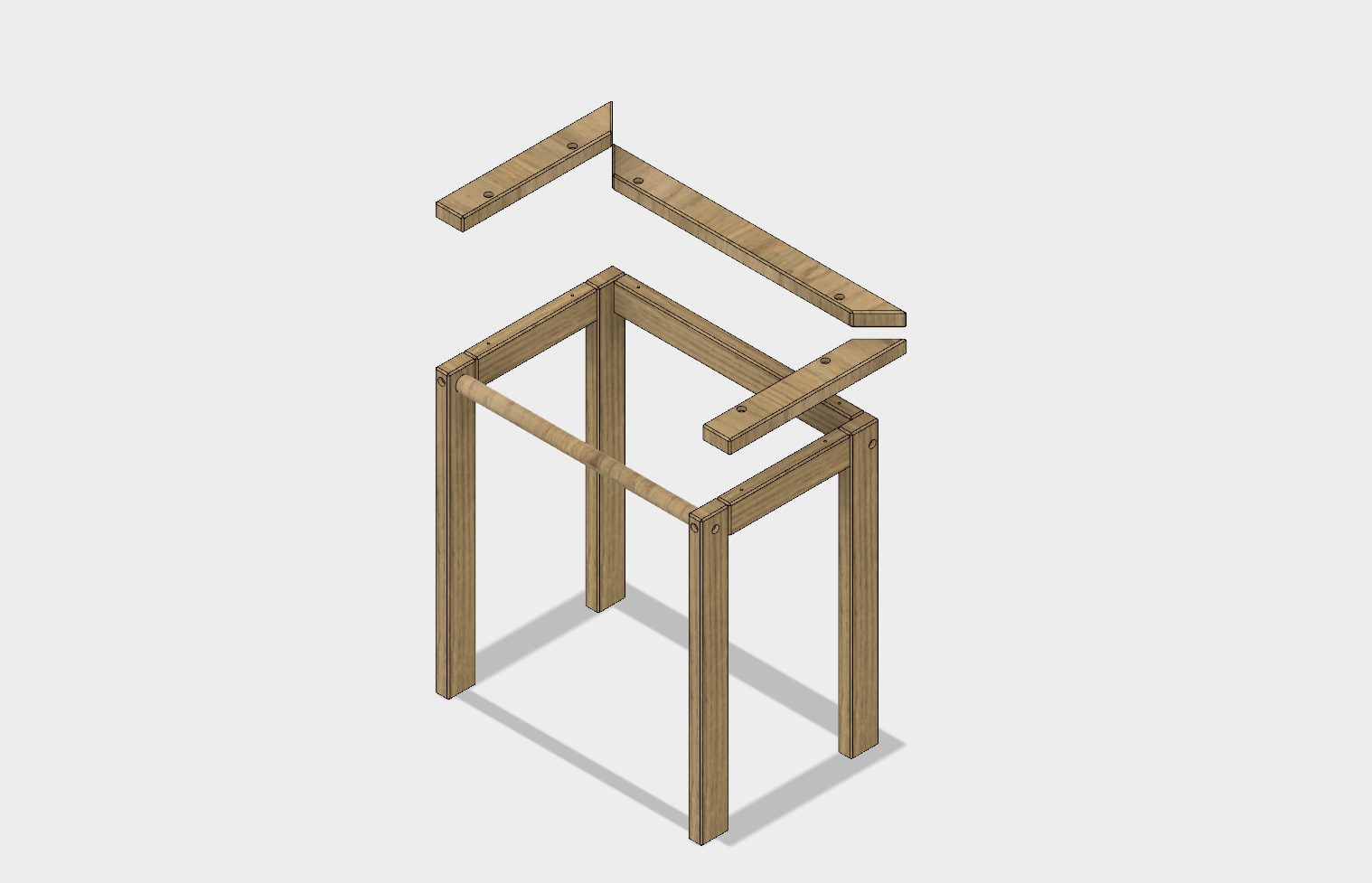
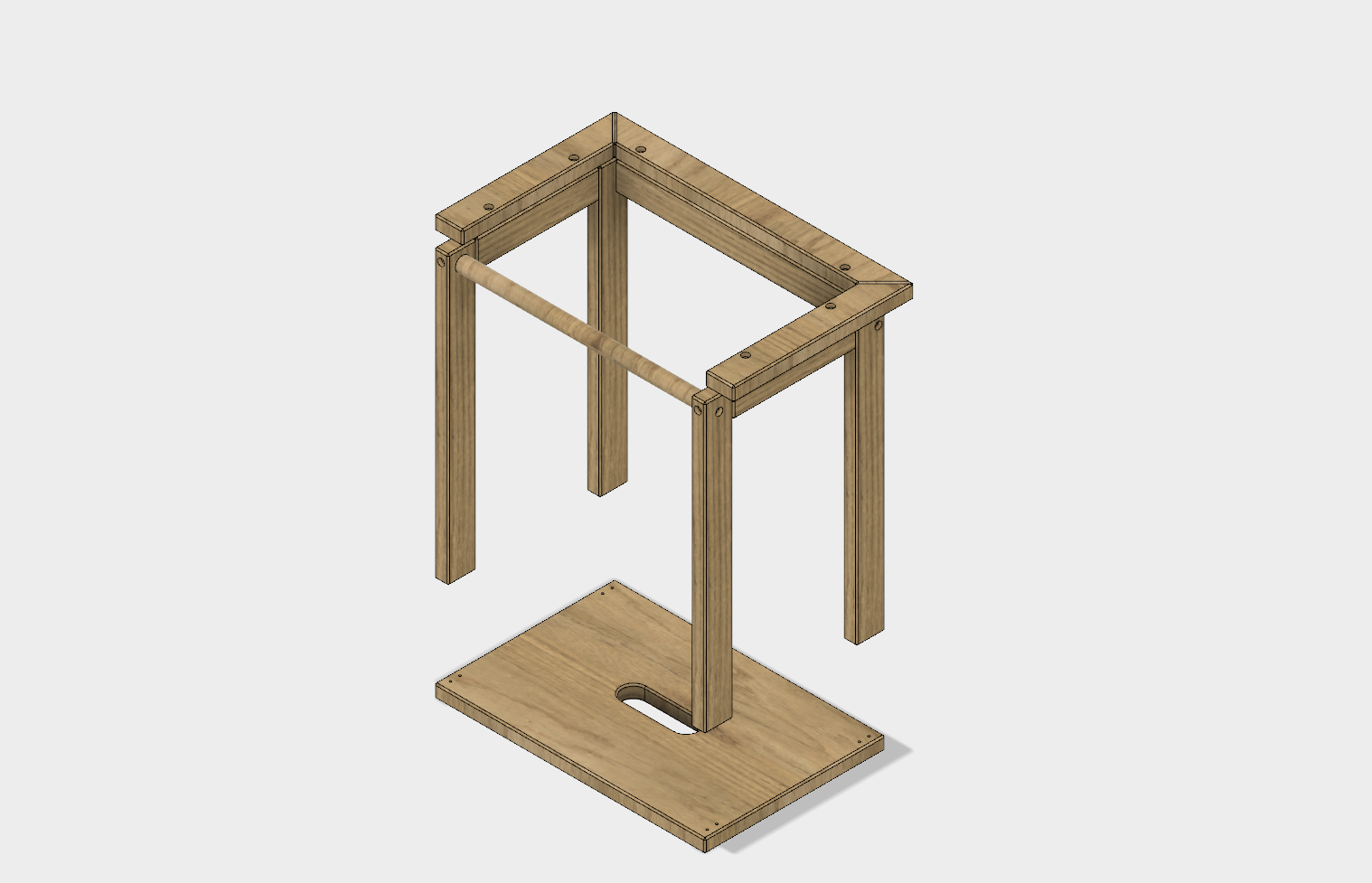
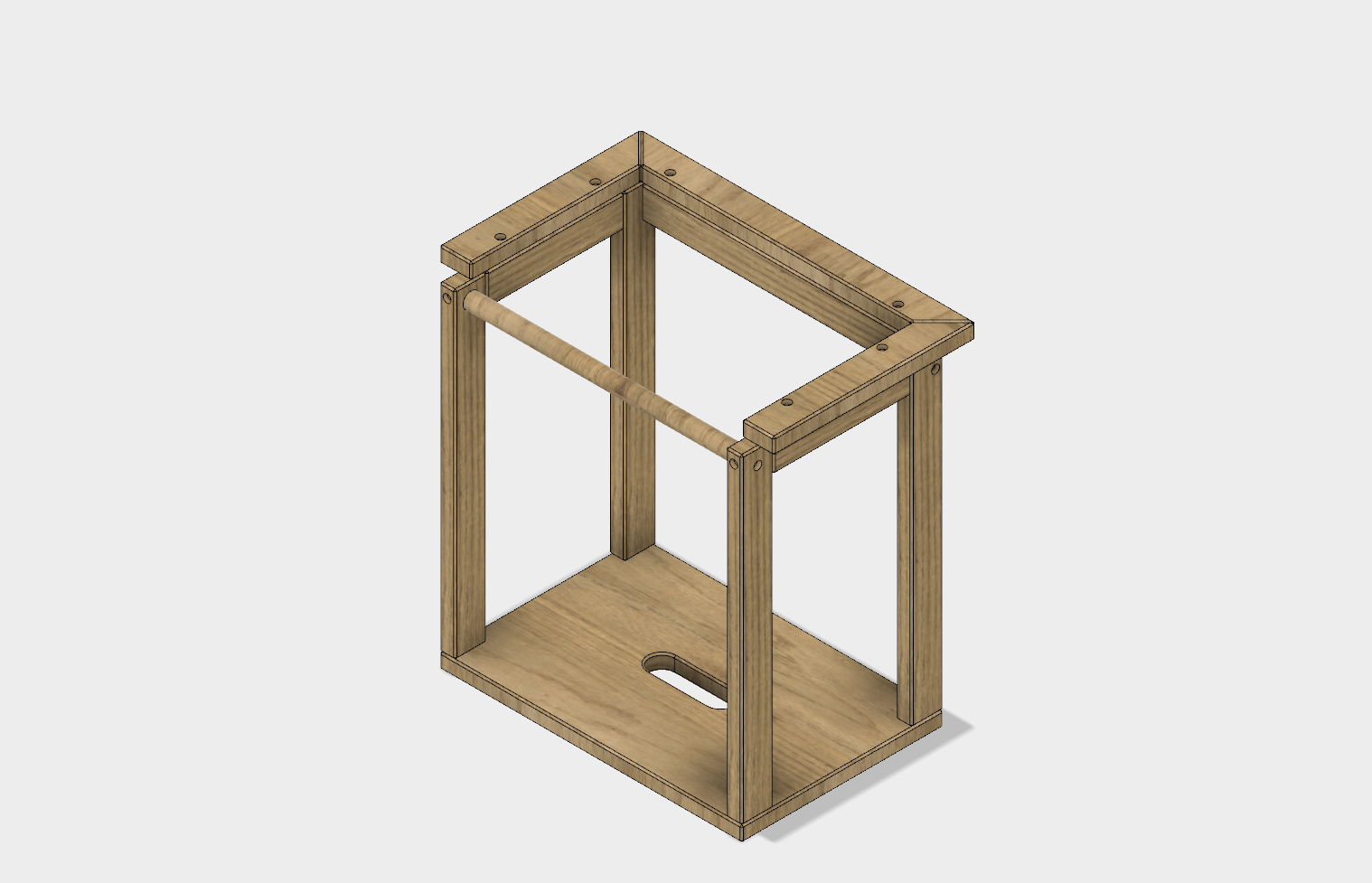
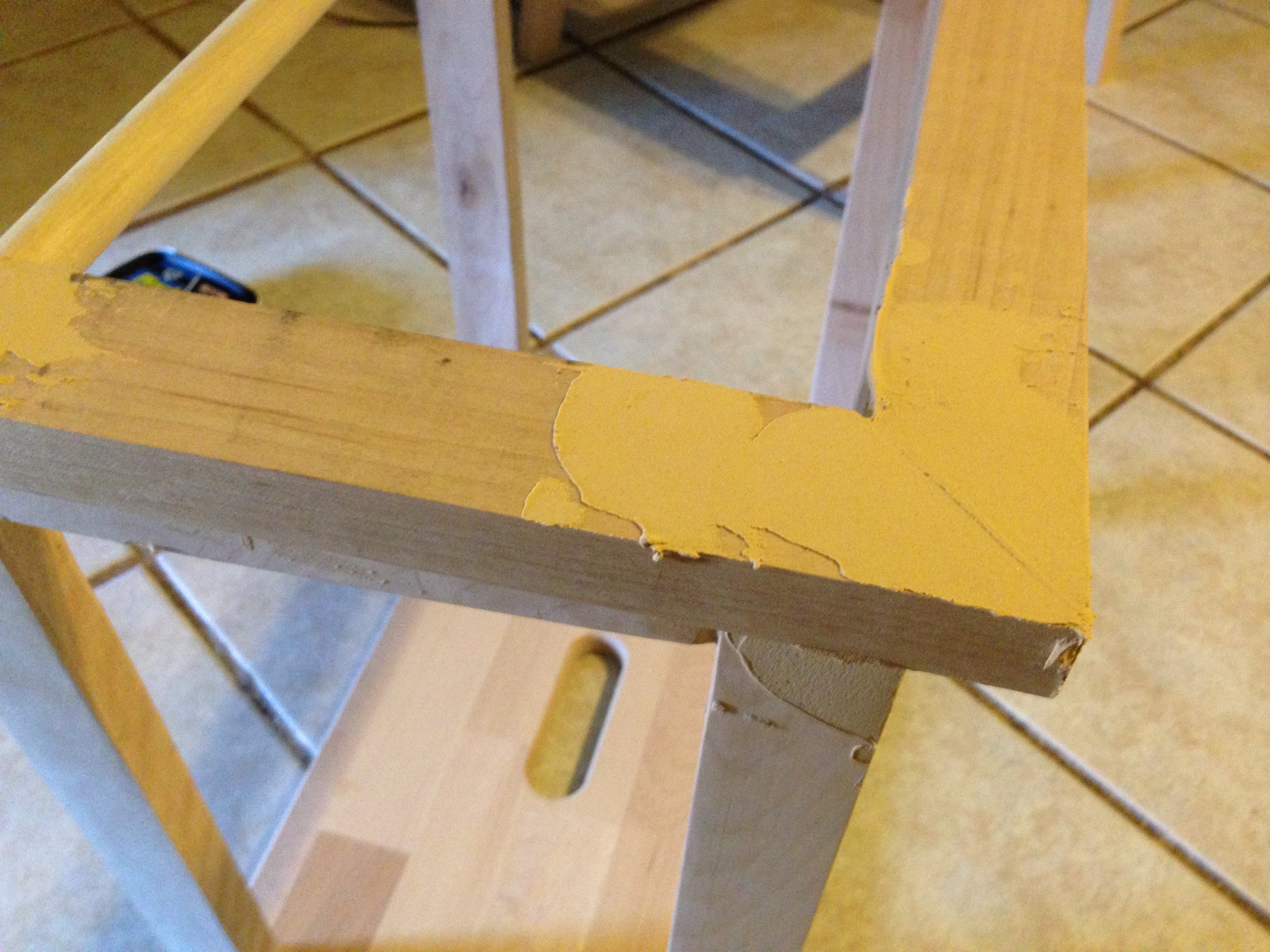
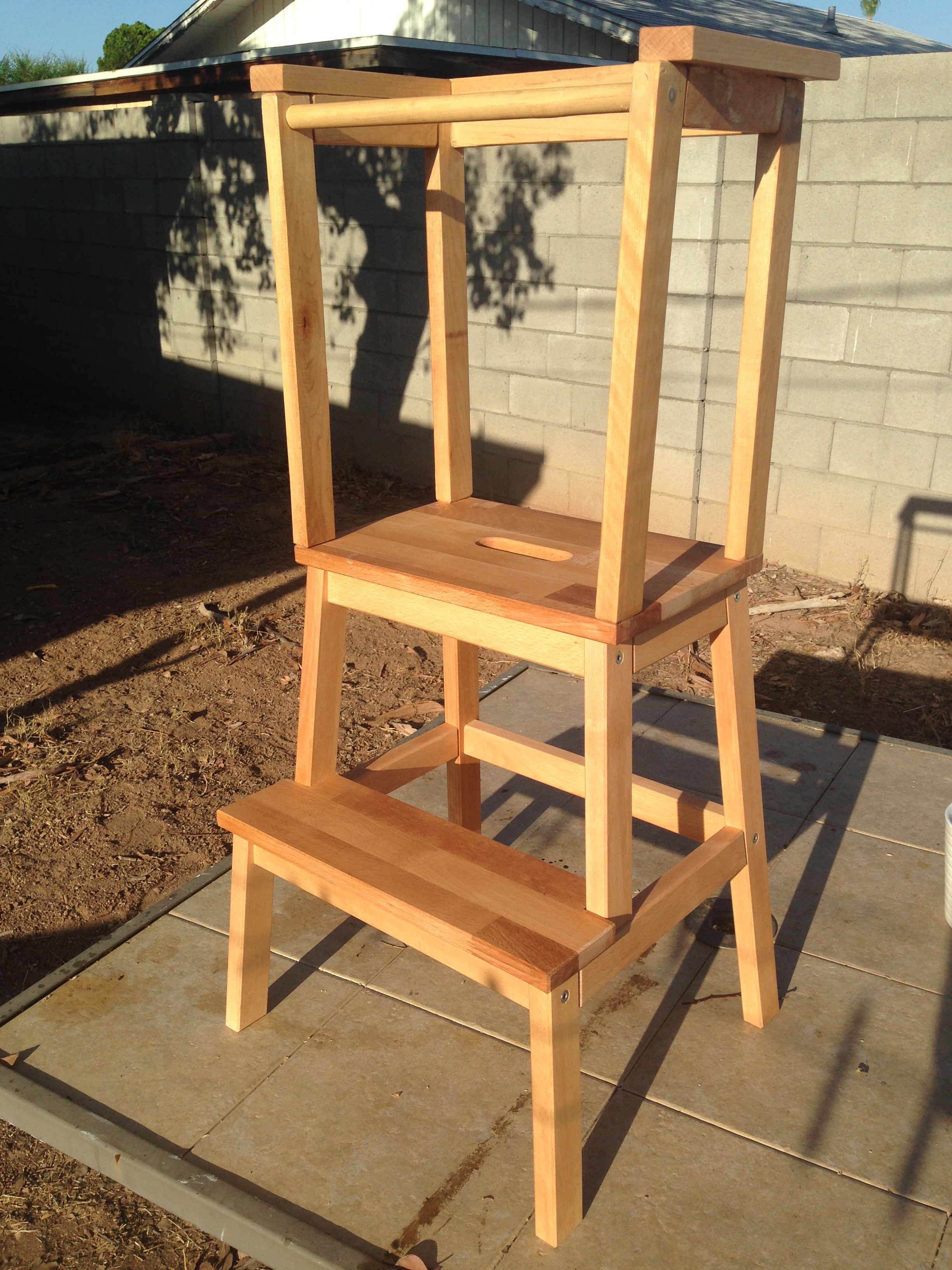
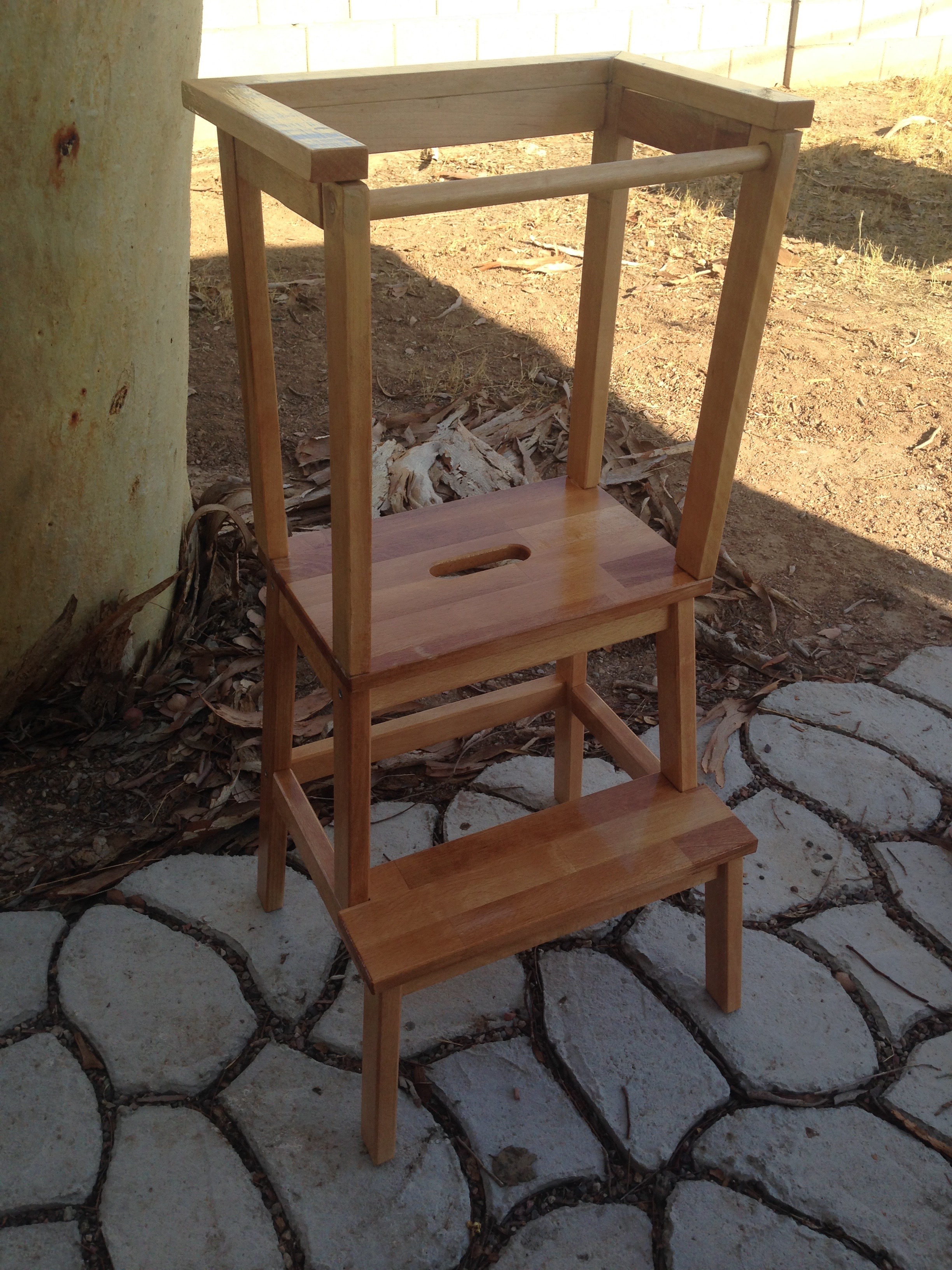
2 Comments
I like it.
I am going to be making one, but I won’t have access to the IKEA stuff to hack so I will have to build it from 2×4 and plywood…how high off the ground is the standing area? If you were to do it over and you could change anything about it (height; area; rail dimensions; mobility; etc.) what would you change?
Hey Grant!
From the ground, the first step is ~10″ and the second (standing area) ~20″.
Height and area of the “platform” work out pretty well for us. Go wider/deeper if you’d rather keep the center of gravity lower for epic wigglers (which will change everything else, but it’s not difficult to modify the rest if you’re starting from scratch). I might end up going back to add extra horizontal rails now that she’s climbing out herself (that’ll limit her perceived exits), but so far it hasn’t been a big issue. The maple is pretty light and she’s gotten to the point where she can push the whole thing to where she wants to go, so that’s… fun.